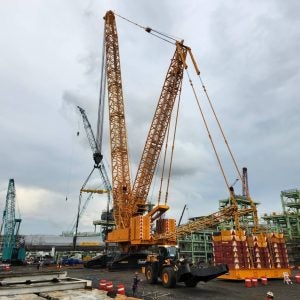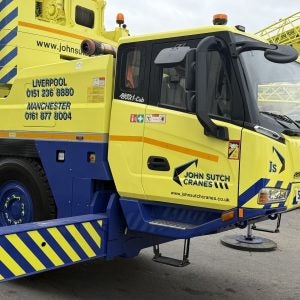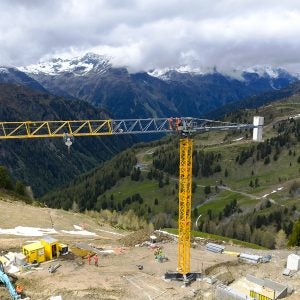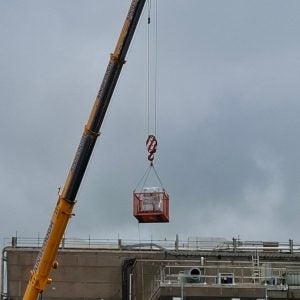John Varcoe, addressing the annual open meeting, had looked in detail at the debate between industry, government and environmental groups over emissions standards in London.
Transport for London’s charging scheme for road vehicles, the London Low Emission Zone (LEZ), had been agreed to the CPA’s satisfaction, with off road vehicles, such as mobile cranes travelling to the job site, exempted from the scheme, Varcoe said. However, a different set of standards applied at the job site. These, the London Best Practice Guide, were agreed by planners from the GLA and the Energy Saving Trust, and drew largely on advice from Precis, an environmental pressure group, with no advice taken from the plant-hire industry.
The Best Practice Guide had been set up as a system of planning requirements, rather than a regulation. While carrier engines on off road cranes would be exempted (as a result of being exempted from the LEZ), superstructure engines on two-engine plant would be covered by the scheme. This, Varcoe explained, requires that all engines comply with Euro II or Euro IIIa standards (meaning they can be no more than six years old) and that those over 37kW (small for a crane) be fitted with a diesel particulate filter.
Colin Wood, speaking to Cranes Today after the event, said that the costs didn’t end there: plant hire firms would have to consider the commercial and safety effects of changing filters high up on the crane structure, the visibility and burn risks the large filters pose, the engine manufacturer’s warranty (which may be voided by fitting the filters) and the need to switch from tax-exempt red diesel to filter-compatible low sulphur diesel, when arriving at a Best Practice Guide job site. Wood pointed out that these regulations, and the potential costs they would bring to plant hire firms, are coming only a few years before Euro IIIb and IV standards will ensure that all engine emissions are reduced to levels similar to those demanded by the BPG.
Varcoe said, “The CPA will meet the GLA and Energy Saving Trust to discuss this on the September 25. The CPA will argue for more engine categories, including superstructure engines, to be exempted. The CPA is telling the GLA the current BPG is unworkable. The CPA advises members not to buy diesel particulate filters, until the final exemption list is agreed.”
It was discussion of this meeting that prompted Wood to deliver his warning to the GLA: “We’re fully supportive of the aim of reducing emissions, but it needs to be a practical solution. I’m hoping the GLA will see sense, and exempt crane superstructure engines from the requirements. If we cannot get a satisfactory response from GLA, we will advise members to think long and hard about the practicalities and cost implications of fitting diesel particulate filters, and whether to supply equipment on high profile sites, which will include the Olympic sites.”






